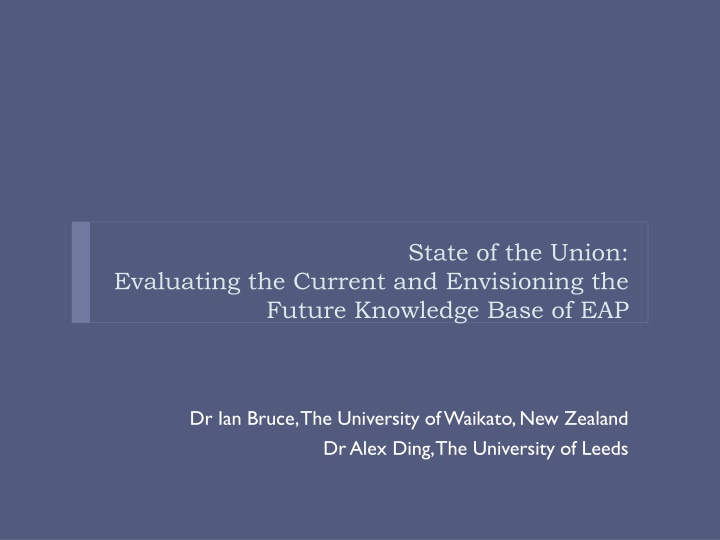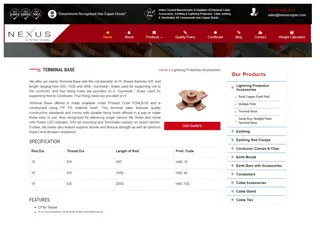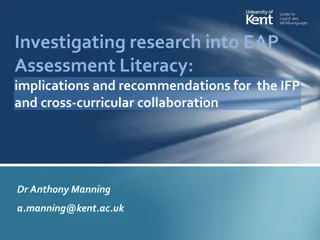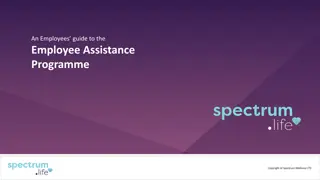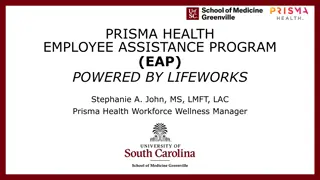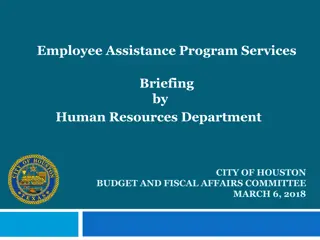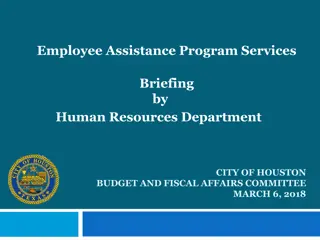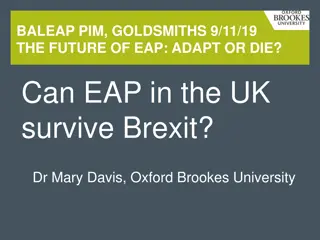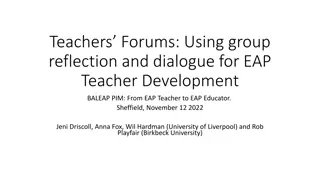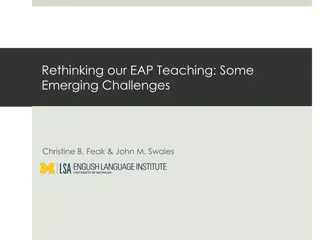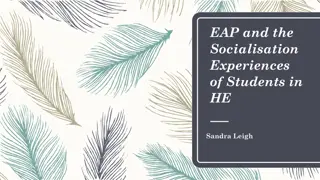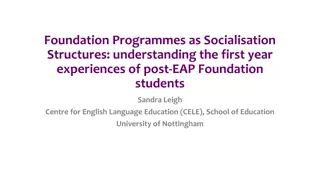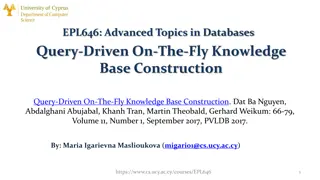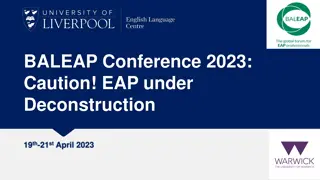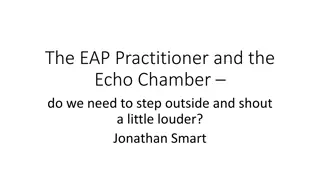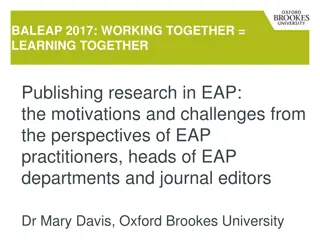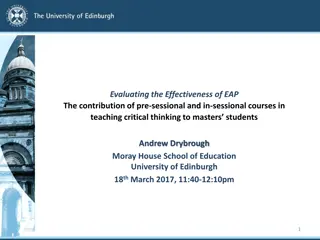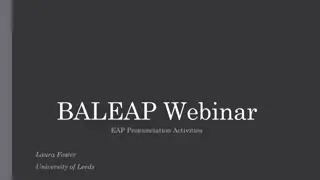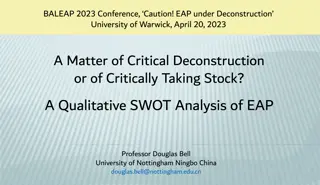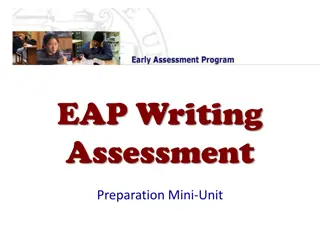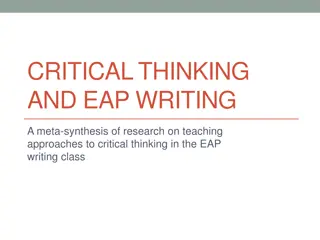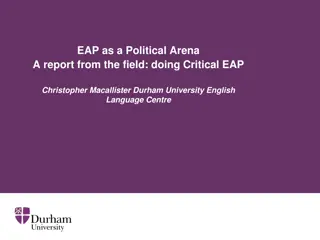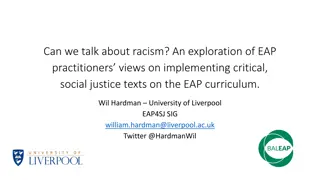Evaluating the Current and Envisioning the Future Knowledge Base of EAP
This session by Dr. Ian Bruce from The University of Waikato, New Zealand, and Dr. Alex Ding from The University of Leeds focuses on assessing the existing knowledge base of EAP while also discussing future developments and possibilities in the field. Attendees will gain valuable insights into the evolution and potential advancements of English for Academic Purposes.
Download Presentation

Please find below an Image/Link to download the presentation.
The content on the website is provided AS IS for your information and personal use only. It may not be sold, licensed, or shared on other websites without obtaining consent from the author.If you encounter any issues during the download, it is possible that the publisher has removed the file from their server.
You are allowed to download the files provided on this website for personal or commercial use, subject to the condition that they are used lawfully. All files are the property of their respective owners.
The content on the website is provided AS IS for your information and personal use only. It may not be sold, licensed, or shared on other websites without obtaining consent from the author.
E N D
Presentation Transcript
State of the Union: Evaluating the Current and Envisioning the Future Knowledge Base of EAP Dr Ian Bruce, The University of Waikato, New Zealand Dr Alex Ding, The University of Leeds
Ding, A., & Bruce. I. (in press). The English for Academic Purposes Practitioner: Operating on the Edge of Academia. Palgrave.
Discursive Competence social competence generic competence textual competence Bhatia, V. K. (2004). Worlds of (Bhatia, 2004)
Social Competence incorporates an ability to use language more widely to participate effectively in a variety of social and institutional contexts to give expression to one s social identity, in the context of constraining social structures and social processes [emphasis added] (Bhatia, 2004, p. 144)
Generic Competence means the ability to identify, construct, interpret and successfully exploit a specific repertoire of professional, disciplinary or workplace genres to participate in the daily activities and to achieve the goals of a specific professional community (Bhatia, 2004, p. 145)
Textual Competence represents not only an ability to master the linguistic code, but also an ability to use textual, contextual and pragmatic knowledge to construct and interpret . . . texts (Bhatia, 2004, pp. 144-145)
Reference Bhatia, V. K. (2004). Worlds of Written Discourse: A Genre-Based View. London: Bloomsbury Academic.
